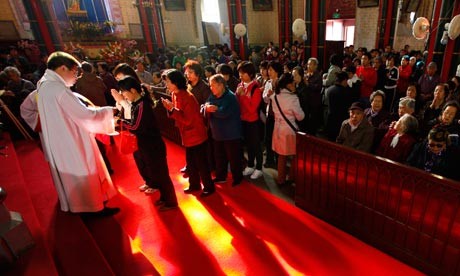After the Communist leadership of China's coastal Zhejiang Province fueled the ever-contentious matter of religious freedom in early February through its religious crackdown, the pressure on Beijing intensified on yet another front.
With the co-existence of a continually heightening outcry from U.S. companies regarding the technology policy that now binds the nation's banking system, the world waits to see how Chinese authorities respond to accusations of authoritarianism.
Coincidentally, both issues surfaced in the late part of last year, as December gave rise to campus protests from Chinese students who opposed Christmas celebrations (also supported by authorities in one Zhejiang city), while a top-level Party cybersecurity committee, led by President Xi Jinping, passed a 22-page document at the end of last year. The former aroused concerns in the Western media, while foreign business groups objected to the latter as a form of "protectionism."
As far as religion is concerned, China recognizes five "official" religions--Buddhism, Taoism, Islam, Protestantism and Catholicism. However, worship must be undertaken in state-sanctioned institutions. Furthermore, Buddhism and Taoism have been given far more official support because they are deeply rooted in Chinese culture.
The reason why religious belief is disparaged by China's officials is because it is not consistent with the ideological basis of the ruling Communist Party, which adopts a Marxist-Leninist ethos. The deduction is straightforward and provides a clear reason for why religious believers are technically barred from becoming Party members.
In terms of the Zhejiang Province, an academic from Purdue University's Center on Religion and Chinese Society explained on Sunday:
"This crackdown is happening primarily in one province, where the provincial leader is said to be sympathetic to Buddhism. He dislikes the prominence of crosses and of Christianity and has vowed to reduce its public visibility at least."
What the media portrays and what those who are intimately familiar with the subject convey can sometimes greatly differ. It is also important to undertake research to know the facts before an opinion is formed. As far as Beijing goes, though, the buildup of pressure during the "new normal" could become intolerable.



























